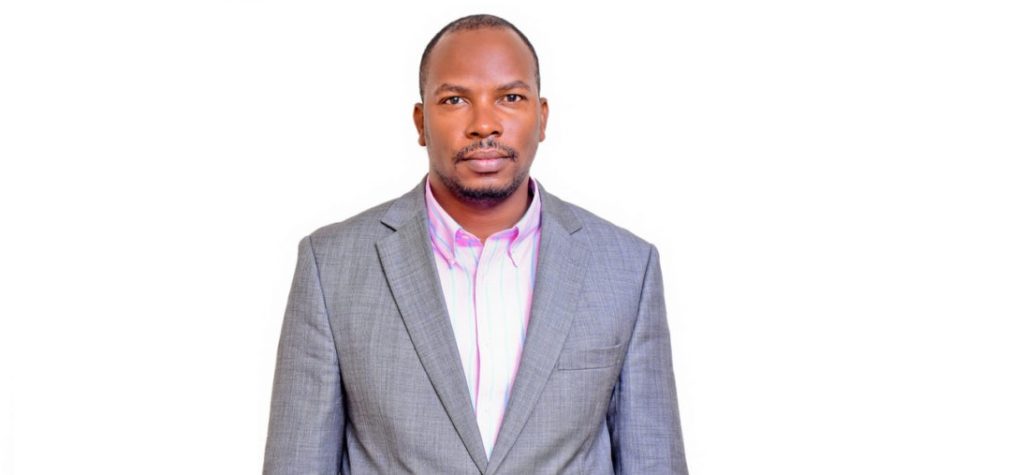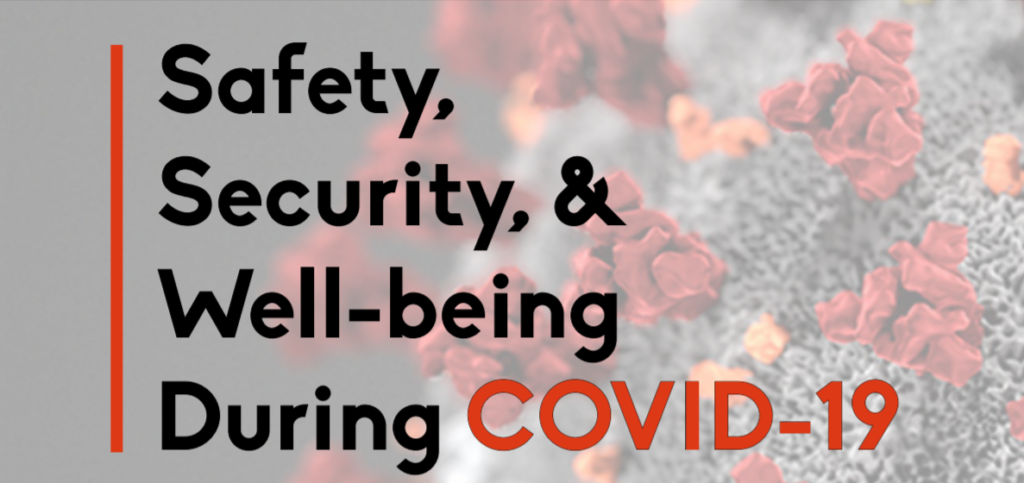Dear friends and colleagues,
The COVID-19 pandemic is continuing to drastically shape our work. To contain the spread of the virus, most of our team has been working from home, but that is not to say that we have worked less. Much of our work has quickly shifted to online spaces: our protection team is engaging both online and physically to provide support to human rights defenders (HRDs) at risk, the DefendersTech team has prepared several online workshops, and our advocacy team has participated in the first-ever online conversation with the UN High Commissioner for Human Rights and continued to advocate for meaningful resolutions and decisions, particularly by the UN Human Rights Council, which might resume its sessions in June.
In the month of April, we unfortunately saw a steep rise in human rights violations, under the guise of fighting COVID-19. In the East and Horn of Africa sub-region, there have been reports of police brutality in enforcing lockdowns (including beatings and killings), failure to take protection measures for prison inmates, as well as censorship and intimidation of those, including journalists, who challenge official narratives. There seems to be a rise in domestic violence, and states have failed to respond adequately to protect victims and survivors. We are monitoring these worrying trends and urge states to uphold their obligations to respect, protect, and fulfil human rights. Any restrictions to rights must be temporary, lawful, non-discriminatory, strictly necessary, and proportionate to the threat. They must not outlast the pandemic. Those at risk of abuses must be protected.
Given these developments, many HRDs are in an even more vulnerable position than usual. We continue to support HRDs at risk and our protection team remains available. Additionally, we have prepared Security Guidelines for HRDs, to help them protect themselves and their work, and compiled information and various resources on the topic of COVID-19, human rights, and HRDs. I hope these will be useful to you and your work.
Please stay safe and take care of your loved ones!
Yours sincerely,
Hassan Shire
Executive Director, DefendDefenders
We encourage all human rights defenders who need emergency protection to reach out to us via [email protected] or our 24/7 emergency phone line on +256 783 027 611. This line is also available on signal.
Human Rights Defender of the Month: Onyango Owor

In March 2020, Uganda’s Constitutional Court nullified the Public Order Management Act, 2013 (POMA), a law that made arbitrary restrictions on freedom of assembly possible. One of the people behind the successful petition of POMA is Onyango Owor, a Ugandan lawyer with 15 years of experience in representing HRDs.
For Onyango, having POMA declared unconstitutional is more than a professional success. “The ripple effects of such a case go beyond the court room or the human rights defenders that had been affected by a draconian application of this law,” Onyango says, and is confident that “there is greater freedom of association as a result of this case.”
Check out:
- DefendDefenders’ upcoming online workshops. The Regional Ttaala Online Workshop and the Regional SAFETAG Junior Auditors Training are now accepting applications.
- University of York’s Centre for Applied Human Rights is accepting applications for their Protective Fellowship Scheme.
Recommended reading:
- Security Guidelines for HRDs and Resources on COVID-19, human rights, and HRDs, DefendDefenders, April 2020
- 2020 World Press Freedom Index: Entering a decisive decade for journalism, exacerbated by coronavirus, Reporters Without Borders, April 2020
- Interview: Sudan: Long Time Women Rights Activist Sawsan Alshuwayya, AllAfrica, April 2020
Updates from DefendDefenders:
- DefendDefenders’ advocacy team has joined forces with partners, like the HRCnet network at the HRC, which has suspended its 43rd session, to highlight the need for a human rights-based approach to COVID-19. On 9 April 2020, we participated in the first-ever online conversation with the UN High Commissioner for Human Rights. We continue to engage the HRC and States, as a President’s statement (similar to a resolution) is due to be discussed in May 2020 to outline the UN’s top human rights body’s response to the crisis;
- DefendDefenders’ protection team received a total of 14 requests; 3 cases were approved, 8 cases were rejected, 2 were referred and 1 is pending approval. They continue engaging with HRDs at risk and unable to relocate, those detained and denied access to legal representation or due process, and those in need as a result of the current situation;
- We have engaged with partners online, to discuss how best to support HRDs at risk during the ongoing lockdowns and restrictions in different countries of the sub–region, especially minority rights HRDs;
- DefendersTech team supported an organisation by removing malware from their website, updating all plugins, and moving it to a different hosting platform to ensure it is secure. The website had previously been offline several times, it is possible that they were targeted due to the nature of their work, which supports HRDs; and
- From 30 March to 3 April, we held our first ever Ttaala Online Sprint Workshop. Creatives, developers, and a health rights organisation virtually worked together on a secure medical database that will eliminate paper-based processes and enhance the right to quality healthcare for the LGBTI community in Uganda
Updates from AfricanDefenders:
- AfricanDefenders wrote a letter to H.E. Moussa Faki, the Chairperson of the African Union (AU) Commission, regarding the xenophobic and racist treatment of African nationals in China, urging for a full investigation into and remedial action of these human rights violations;
- We supported Cameroonian CSOs through an informal network called Cameroon Advocacy Group to organise meetings and address the need for an urgent investigation into gross and grave human rights violations in Cameroon;
- We are preparing to conduct needs assessments for coalitions in Mozambique, Burkina Faso and Malawi, to determine how to best support them;
- AfricanDefenders participated in a webinar hosted by the AU Economic, Social and Cultural Council in conjunction with the African Development Bank. The webinar focused on gender implications of Africa’s COVID-19 response and highlighted gender-related gaps, risks and threats observed in the ongoing response measures;
- We joined a meeting hosted by Open Society Foundations analysing the impact of COVID-19 responses on Refugees in East Africa with the aim to coordinate policy and advocacy actions;
- AfricanDefenders engaged the African Commission on Human and People’s Rights (ACHPR) to coordinate on effective working methods that will allow continued engagements between the Commission and HRDs amidst the COVID-19 pandemic; and
- We were a part of an online meeting organised by the International Forum for Democratic Studies and National Endowment for Democracy on “Deepening Repression Amidst the COVID-19 Crisis: Implications for Democrats at Risk”. We provided input on the impact of COVID-19 on human rights defenders in Africa, as well as our work to support them.
Human rights updates from the East and Horn of Africa sub-region:
Eritrea
- Eritrean prisons remain overcrowded, amid a rise in COVID-19.
- The Eritrean government launched yet another unwarranted attack on the UN Special Rapporteur, refusing to act on her call to free political prisoners and low-risk offenders to reduce the COVID-19 threat in crowded jails.
Ethiopia
- Journalist Yayesaw Shimelis was arrested on allegations for spreading false information about the COVID-19 pandemic. Attempts to charge him with terrorism-related offenses were rejected by the court, which released him on bail.
- Ethiopia’s authorities continue to demolish informal housing with no housing alternative for tenants – leaving them homeless and even more vulnerable to the COVID-19 pandemic.
Kenya
- At least six people died of the police’s heavy-handed enforcement of the COVID-19 lockdown, leaving many more heavily injured. Furthermore, the restrictions seem to have exacerbated domestic abuse cases.
- Kenyan activists call on the government to not only sensitise the population on correct use of face masks, but also correct disposal.
- On 24 April, Michael Njau and two of his friends went missing. Njau’s friends fear that his disappearance comes as a reprisal to his work, fighting extrajudicial executions.
- Kenya’s High Court ruled that the disputed mobile management system is unlawful and threatens freedom of privacy and that there has been no public participation on its use.
Rwanda
- RDF soldiers continue their heavy-handed tactics in enforcing the COVID-19 lockdown and are accused of human rights abuses, including rape, by persons living in slums.
- April 2020 marks Kagame’s 20th year as President of Rwanda, amid ongoing serious allegations of human rights abuses.
- Refugees and migrants, relocated from detention camps in Libya, protested Rwanda’s COVID-19 lockdown as they are confined in camps and allegations of sexual abuse have arose.
Somalia/
Somaliland
- Somalia pardoned 148 prisoners on 2 April due to COVID-19. Journalist Mohamed Abdiwahab Nuur was not amongst them, despite no conviction. He continues to be held incommunicado since March. A petition for his release has gained traction. On 1 April, authorities in Somaliland also released 574 prisoners, due to COVID-19.
- Seven Kenyans were detained on 5 April by Somali authorities. The seven were trying to cross the Somali-Kenyan border, to return home from a welding job in Somalia.
- In a report published 27 April, US authorities admitted to having killed civilians during air attacks in Somalia.
Sudan
- Rapid Support Forces released HRD Abdelmalk Mousa on April 8, more than a month after his kidnapping.
- On April 11, it has been one year since Omar al-Bashir was forced to step down. Human Rights Watch calls for justice of his government’s crackdown. In the meantime, COVID-19 cases have been confirmed in the prison were Al-Bashir is held – supporters call for his release, causing controversy.
- Sudan’s transitional government approved an amendment on 22 April, making it illegal for anyone to carry out female genital mutilation (FGM). Those breaking the law face three years in prison and a fine.
South Sudan
- 1400 inmates have been released from South Sudan’s prisons, due to COVID-19.
Tanzania
- On 6 April, Tanzania’s government allowed pregnant girls to resume formal education, after a ban in 2017. This change comes after the approval for a $500 million worth World Bank educational project and general international pressure.
- Daily newspaper Mwananchi has been suspended and fined 5 million Tanzanian Shillings, shortly after the newspaper had sparked public debate on Tanzania’s COVID-19 response, when it published a photo of President Magufuli surrounded by a crowd. Previously, Star Media Tanzania Ltd, Multichoice Tanzania Ltd and Azam Digital Broadcast Ltd had respectively been fined the same amount and ordered to apologize for “transmission of false and misleading information” due to their COVID-19 reporting.
- On 20 April, journalist Talib Ussi Hamad was suspended from his profession for six months, after reporting on a COVID-19 patient, allegedly without consent.
Uganda
- Francis Zaake, an opposition member of parliament, was reportedly tortured after security forces arrested him for distributing food to constituents on 19 April.
- On 20 April, journalist and anchor Samson Kasumba was arrested and continues to be held on alleged subversive activities.
- Popular Ugandan activist Barbara Allimadi was found dead on 27 April, police are investigating the circumstances.
- A court in Uganda this week rejected bail for 19 members of the LGBT community who were arrested at a shelter for sexual minorities, for gathering in public in violation of the coronavirus lockdown. Their lawyer argues the men were targeted because of their sexual orientation. HRD advocates also report on several police attacks targeting sex workers, barmaids and other vulnerable communities.



